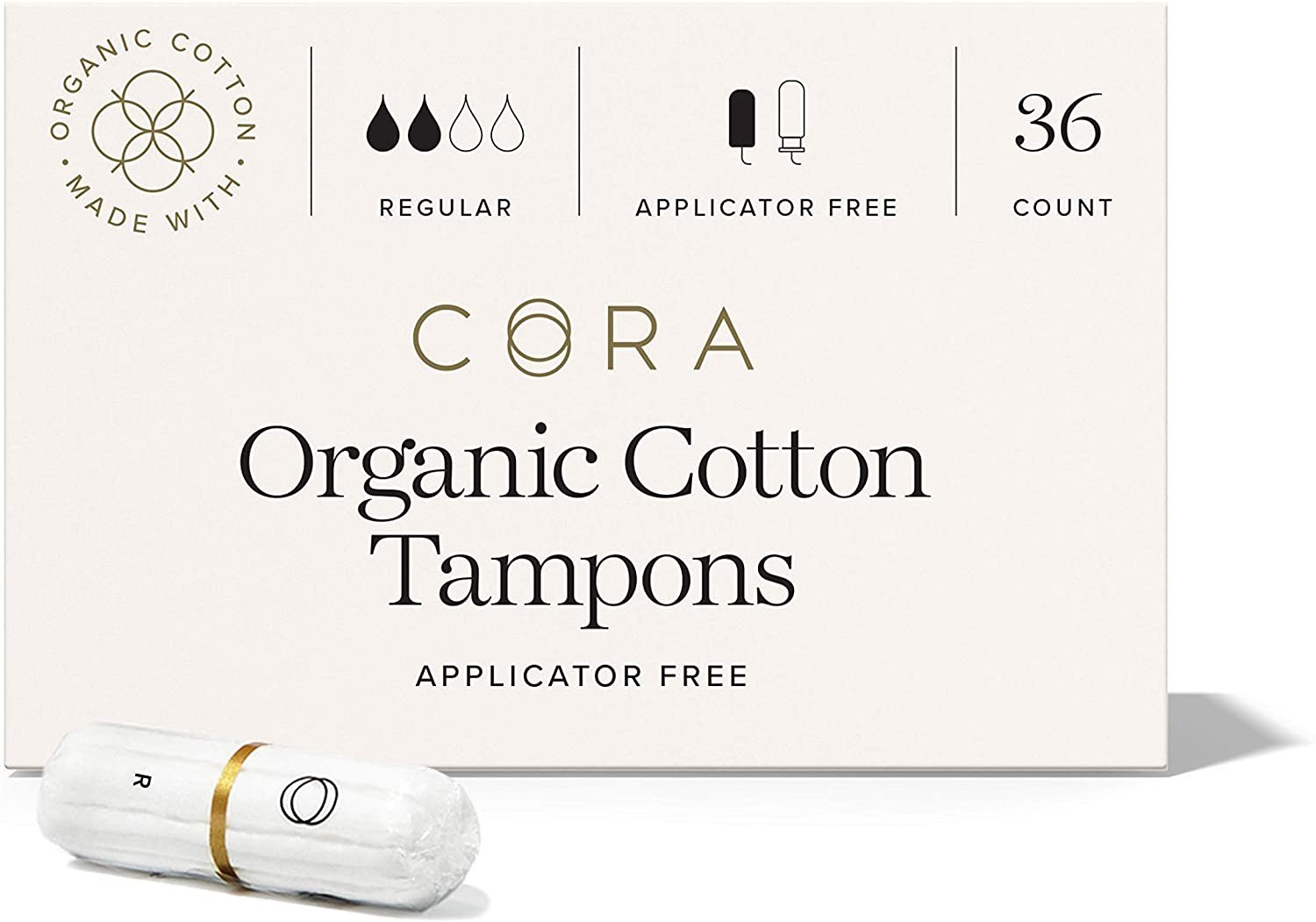Tampons
The average American who menstruates will use over 16,000 tampons throughout their lifetime. It is estimated that in 2018 alone, people in the U.S. bought 5.8 billion tampons. This is pretty alarming when you consider the fact that the vast majority of those tampons will end up in landfills as plastic waste.
What to be wise on:Today, most conventional tampons contain plastic in their wrappers, applicators, strings, and sometimes even have a thin layer of plastic in the absorbent part itself. That’s a whole lot of plastic sitting first inside our bodies and then in landfills. Although some applicators are technically made of recyclable materials, they are usually not accepted by recycling plants for sanitary reasons. Look for applicator-free tampons to avoid contributing unnecessarily to plastic waste.
A FEW TAKEAWAYS:We love applicator-free, chlorine-free, fragrance-free tampons made out of organic cotton. Conventional cotton can contain nasty pesticide residues that can lead to endocrine disruption and cancer, and trust us — you don’t want fragrances or chlorine bleach anywhere near your hoo-ha.
TLDR: JUST TELL ME WHAT TO CHOOSE. Here are some of our favorite tampon options based on what they’re made of and how they’re packaged, as well as how absorbent and comfortable people think they are.
What We Love:These tampons are chlorine-free, fragrance-free, and there’s no applicator. They’re made of GOTS-certified organic cotton, and 83% of customers love them for their leak protection and absorbency.
What could be better:These tampons are wrapped in a thin layer of plastic and some customers say that they’re difficult to insert.
What We Love:These GOTS-certified organic cotton tampons are chlorine-free, fragrance-free, and there’s no applicator. $0.43 per pack is donated to nonprofits helping make period care more equitable, and Seventh Generation is a B Corp. 70% of customers say that they work well and are satisfied with the price-point.
What could be better:These tampons are wrapped in a thin layer of plastic and some customers say they are difficult to open.
What We Love:These GOTS-certified organic cotton tampons are chlorine-free, fragrance-free, and there’s no applicator. Cora is a B Corp and has donated over 10 million pads and counting to people in need worldwide. 82% of customers love them, saying they’re easy to insert and work well.
What could be better:These tampons are wrapped in a thin layer of plastic and some customers find that they aren’t as absorbent as other brands.
What we love:These tampons are chlorine-free, fragrance-free, and there’s no applicator. They’re made out of organic cotton, and 81% of customers love them for their effectiveness.
What could be better:It’s not clear if the cotton in these tampons is GOTS-certified, and some customers report that these tampons aren’t as absorbent as other brands.
What we love:These tampons are chlorine-free and fragrance-free, and made with GOTS-certified organic cotton. $0.43 per pack is donated to nonprofits helping make period care more equitable, and Seventh Generation is a B Corp. 82% of customers love them, saying that they are easy to use.
What could be better:These tampons come with a plastic applicator and some customers report that they are too long, causing discomfort.
What we love:These tampons are chlorine-free and fragrance-free, and made with GOTS-certified organic cotton. Cora is a B Corp and has donated over 10 million pads and counting to people in need worldwide. 79% of customers love them, saying that they’re comfortable.
What could be better:These tampons come with a plastic applicator and some customers report that the applicator is flimsy and the tampons aren’t very absorbent.
The factors to consider: Materials
Choose tampons made out of organic cotton. Conventional cotton can contain nasty pesticide residues that can lead to endocrine disruption and cancer.
Chemical Treatments
Look for chlorine-free or unbleached tampons. Chlorine bleach can contain dioxins and furans, which are known to cause cancer, endocrine disruption, and reproductive toxicity.
We recommend fragrance-free tampons. Fragrances can contain undisclosed chemicals associated with allergic reactions, endocrine disruption, and cancer.
Applicators
Ditch the applicator! A Life Cycle Assessment performed on tampons by the Royal Institute of Technology revealed that the largest environmental impact of tampons comes from the production of plastic applicators made of LDPE (low-density polyethylene).
The plastic incorporated into tampons today is there for convenience rather than necessity. Look for applicator-free tampons to avoid contributing unnecessarily to plastic waste.
Certifcations
For tampons made with organic cotton, Global Organic Textile Standard (GOTS) certified ones are the best. GOTS is the most rigorous certification, ensuring compliance with strict social and environmental standards across the entire supply chain.
For conventional cotton tampons, OEKO-TEX certifications ensure that the product does not contain chemicals detrimental to human health.









